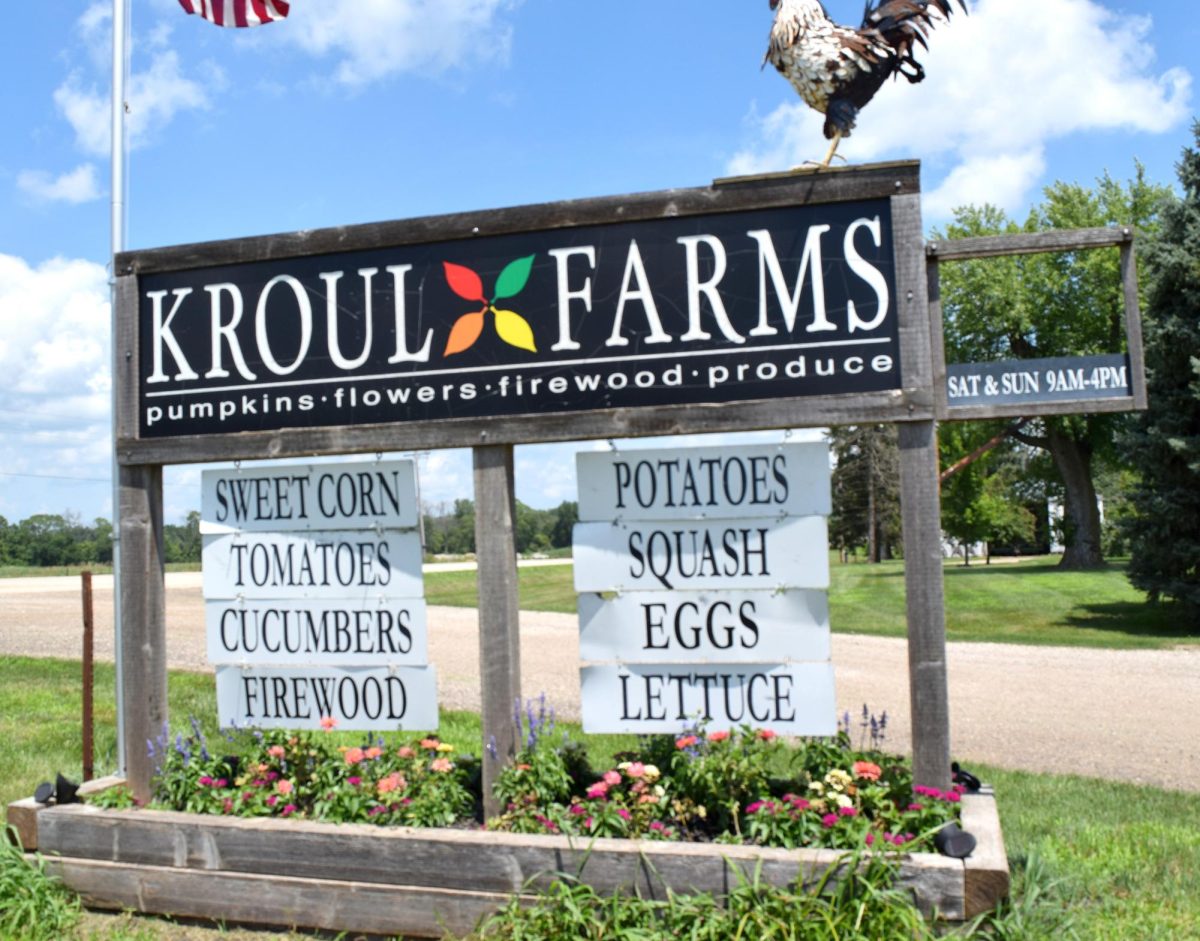MOUNT VERNON — “We pinpointed the early ’90s as when my parents started to kind of dabble in just sweet corn and tomatoes and pumpkins,” Matt Kroul of Kroul Farms said. “So we’ve just grown slowly over time.”
The launch of the Community Supported Agriculture (CSA) program over 11 years ago also served as a major boost to the farm and has been an overall success.
The program currently serves 214 local families and the 16-week program delivers fresh produce to members’ doorsteps each week. Products differ with each delivery and are based on what has been freshly picked.
The large amount of produce picked requires a large number of staff members, with Matt estimating that there are around 30 employees each season. The farm also receives a lot of help from local organizations.
“Just great connections with Mount Vernon, and Solon as well, with local sports teams or clubs that help us with the labor,” Matt said.
The farm initially started with just a single greenhouse and has now expanded into five grower units for flowers and vegetables, a three-acre produce garden, three acres of potatoes, 15 acres of sweet corn, and a whopping 45 acres of pumpkins.
“I always laughed because we used to think that we picked a lot of green beans,” Lori Kroul said. “We’d fill maybe one basket. And then now we pick multiple bushels a day.”
The new age of technology and digital media has brought another aspect of change to the farm.
“I think new age consumerism, as far as Amazon, click to order, and all those things that we now have to get used to as a small family farm, has been a bit of a hurdle at times, just to get the logistics figured out,” Matt said.
One of the challenges of running a small family business is the transition period between the family members as each generation gets older.
“My parents are on the cusp of transitioning out, both of them are right around 65 years of age,” Matt said. “But it’s something that has a lot of conversation and thoughtfulness into what businesses we want to keep and what we want to do and things like that.”
The produce that the farm grows each year is always slightly different as well. Besides the staple items like tomatoes, zucchini and cucumbers, there are almost 50 different varieties of vegetables out in the fields, altering the size, texture and flavor of the classic produce. “There’s always gonna be something new,” Lori said. “We phase out some of the older tomatoes and try some new ones, and then they’re always coming out with some new hybrid of peppers normally.”
Lori has a handful of older high school and college students that specifically assist her out in the garden department during the summer months, and help weed, plant, and fulfill CSA and shop orders. Lori uses a whiteboard to calculate and assess what needs to be done for each produce product.
“I have everything written all out and have it planned out for the day or the next day and what we need to pick, so many pounds of this or so many pounds of that,” Lori said. “Then it’s usually my job to evaluate and see how much of everything we have and how much I can ship out here or there somewhere else.”
The weather also plays a large role in determining the agenda for the day at Kroul Farms. “It’s always dictated by Mother Nature too,” Lori said. “We plan by the weather, so today we picked extra potatoes knowing that tomorrow it’s going to rain and we can’t pick potatoes for two, three days because it’s too wet. We are always staring at the seven-day forecast.” Besides the large number of produce, the farm is also home to a variety of different animals. Chickens, rabbits, a miniature pony, and more than 100 head of cattle are scattered across the property, which is why beef has recently been added as a new product available for purchase.
An interesting fact about the farm is that it was recently featured in an Amazon docuseries. Kroul Farms was the subject of the first-ever episode of Farms of America, which highlights different farms throughout the nation.
“I think they liked us because [we have] four or five different realms of agriculture and also happen to be in the largest corn and soybean state,” Matt said on being selected for the show. “They’re just trying to educate people on different processes and how things are done, and [the show] doesn’t really hide anything either, so it’s pretty real, I would say.” Overall, Matt and Lori emphasize the importance of shopping from local farms in the community, not only to support the farmers, but because the produce is often fresher and higher quality than what can be found in the local grocery store.
“We feel like you taste the difference,” Matt said. “I would encourage people just to go see local farmers, shop and preserve what they can for the next couple months.”

